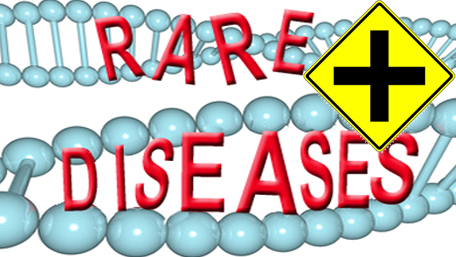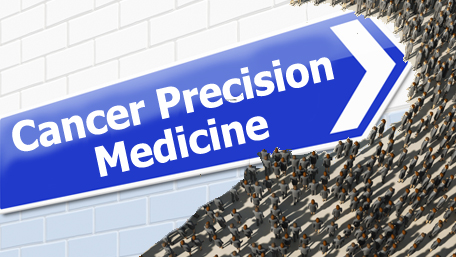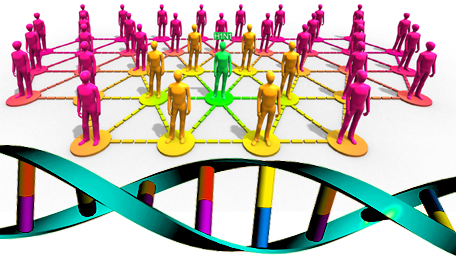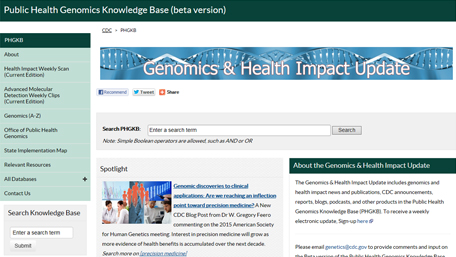Category: genomics
Direct-to-Consumer Genetic Testing and Public Health Education

We have previously blogged about the value (or lack thereof) of direct-to-consumer (DTC) genetic tests in improving health. In a 2011 blog entitled “think before you spit” we cautioned that there was very little evidence that the use of such tests improves health and prevents disease for healthy people in the population. The blog was Read More >
Posted on byRare Diseases, Genomics and Public Health: An Expanding Intersection

Rare Disease Day is celebrated on the last day of February each year. On that day, millions of patients and their families around the world share their stories in order to raise awareness about rare diseases and their impact. There are thousands of diseases that are individually rare but collectively common. In the United States, Read More >
Posted on by 1 CommentCancer Precision Medicine: More Population Sciences Ahead!

We explore briefly the expanding role of population sciences in the implementation of the NIH Precision Medicine Initiative (PMI). The initiative includes a major component on cancer precision treatment, and a large scale cohort study program to generate knowledge applicable to all areas of health and disease, including cancer risk factors and outcomes. Genomics is Read More >
Posted on byPrecision Medicine: the Arrival of Genomics to the Clinic is the Beginning of a Longer Journey

It has been a year since the announcement of the new US Precision Medicine Initiative. As new funding is awarded to investigators across the country, the pace of assembling the cohort of a million or more individuals will accelerate. This cohort will link information from genomic, behavioral, social, environmental, and health outcomes to discover and Read More >
Posted on byPublic Health Genomics 2015: Looking Back, Looking Ahead

In 2015, the United States launched the precision medicine initiative that includes a cancer component and a national cohort research study of one million or more people. While much of this initiative will take years to develop outputs for use in health care, a public health perspective is crucial to ensure the initiative’s success in Read More >
Posted on byNational Family History Day 2015: Thinking globally and acting locally

Though you probably will not find greeting cards in stores celebrating this fact, Thanksgiving has been known as National Family History Day in the U.S. since 2004. The Office of the U.S. Surgeon General and many federal, state and private partners have marked each year with events and announcements promoting the collection and use of family Read More >
Posted on byEngaging Implementation Scientists in Precision Medicine

From the State of the Union through a number of NIH-led workshops to a report from the Advisory Committee to the NIH Director [PDF 1.05 MB], and the recently launched NIH funding announcements, the Precision Medicine Initiative has the potential to reimagine how we can use information on our biology, our environment, our experiences, our Read More >
Posted on byDealing with the Genomics and Health Information Overload: Introducing the CDC Public Health Genomics Knowledge Base

Understanding genetic information is increasingly becoming important for health decision making for a variety of health conditions across the lifespan. The amount of genome-related information is growing exponentially, but it is scattered all over the web, peer-reviewed literature, and public and private databases. The CDC Office of Public Health Genomics has launched the beta version Read More >
Posted on byRecommendations and Reality: What Personal Stories of Hereditary Cancer Can Tell Us

In public health and clinical medicine, recommendations for interventions are generally based on the evidence supporting improved health outcomes. Studies that inform these recommendations often focus on the evidence for benefits, especially when those benefits include lives saved. The harms that affect quality of life are more challenging to quantify and sometimes go unmeasured. Recommendations Read More >
Posted on by 1 CommentInfectious Diseases: Precision Medicine for Public Health

Until now, most medical treatments have been designed for the “average patient.” As a result of this “one-size-fits-all” approach, treatments can be very successful for some patients but not for others. Precision Medicine, on the other hand, is an innovative approach that takes into account individual differences in people’s genes, environments, and lifestyles. The Precision Read More >
Posted on by